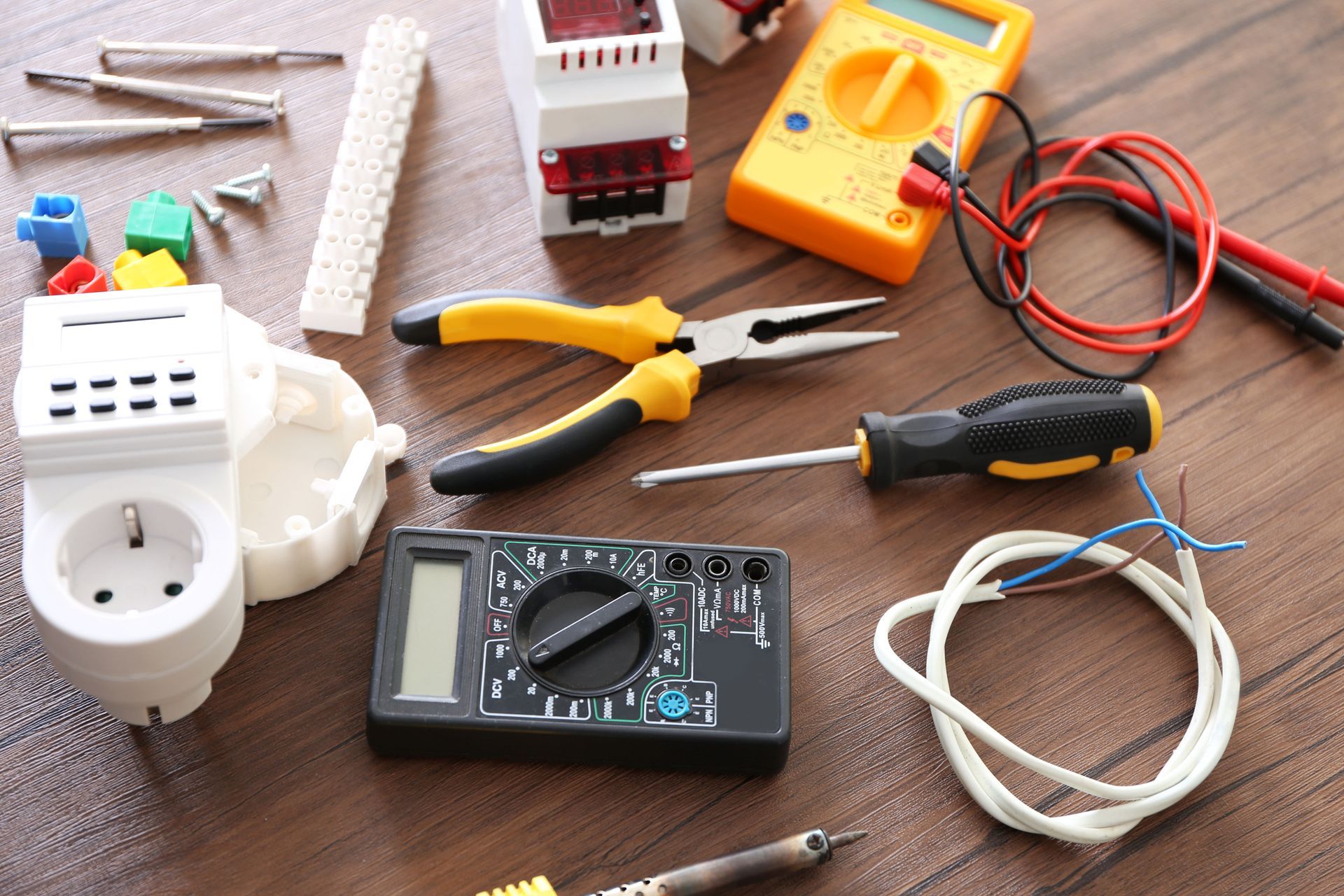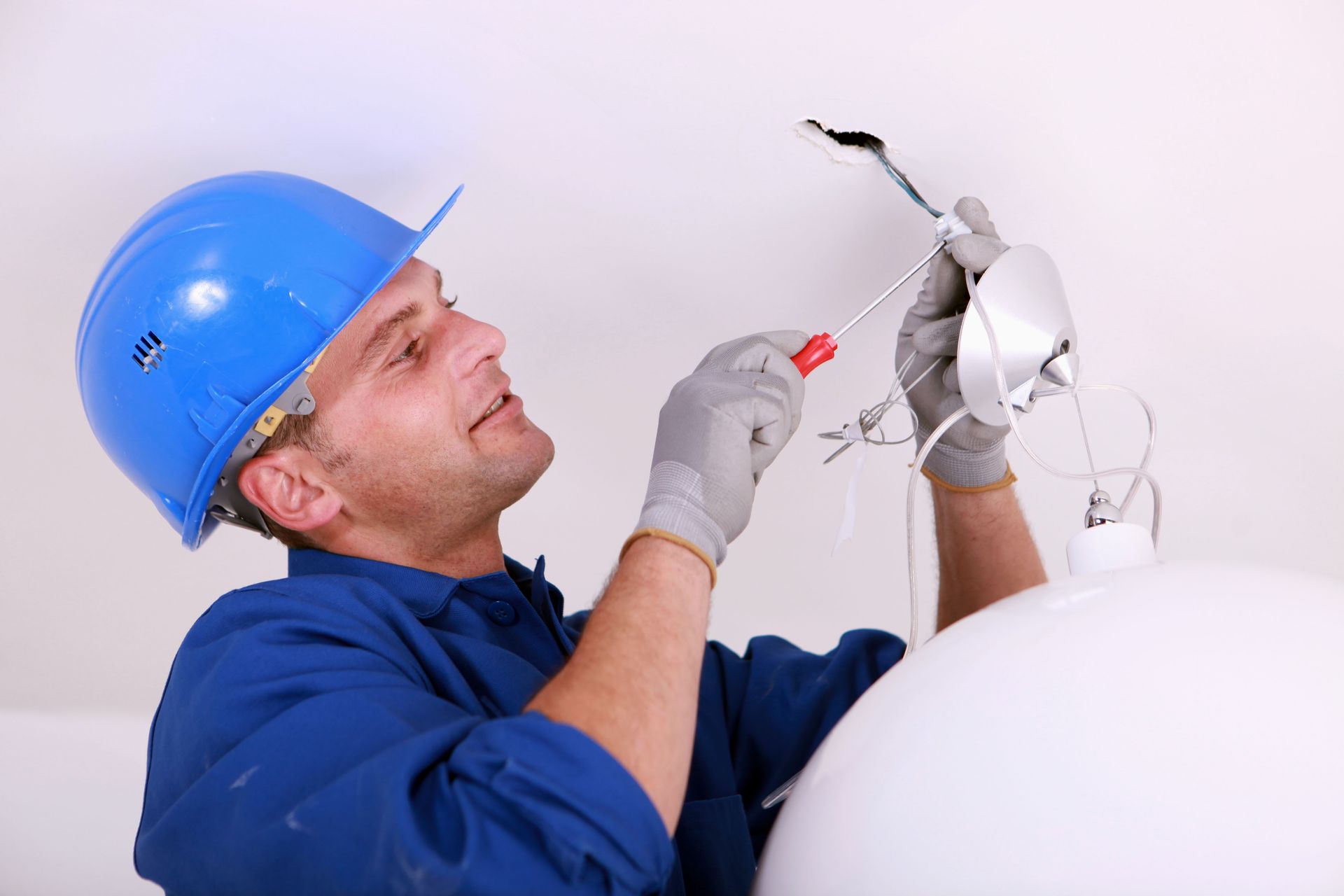By Antionia Jackson | November 24, 2025
Electricity powers nearly every aspect of our daily routines, shaping how we work, live, and interact with technology. With homes and commercial buildings relying on increasingly sophisticated electrical equipment, ensuring these systems run safely and efficiently has become more important than ever. A licensed electrician plays a central role in supporting this modern electrical landscape, offering skilled expertise that protects both people and property.
According to Global Market Insights, the electrical maintenance and repair market was valued at over 20 billion USD in 2024, illustrating the rising demand for dependable electrical services. As electrical infrastructures grow more complex, clients depend heavily on trained professionals who understand safety regulations, modern technologies, and the long-term needs of today's power systems.
Prioritizing Electrical Safety and System Reliability
Electrical safety is the cornerstone of a licensed electrician's work. Hidden dangers can exist behind walls, within overloaded circuits, or in systems that haven't been updated in years. A licensed electrician begins by identifying these hazards through detailed inspections, looking for aging wiring, deteriorated insulation, improper connections, and evidence of overheating. These issues may not be immediately obvious to property owners, but can lead to costly repairs, equipment damage, or life-threatening fires if left unaddressed.
Electricians undergo rigorous technical training and hands-on apprenticeships that equip them to recognize early-warning signs and code violations. They remain updated on changes to the National Electrical Code (NEC) and other safety standards, enabling them to apply the most current best practices to every job. This commitment to continuous learning helps protect clients from risks often associated with DIY electrical work or unlicensed service providers.
Safe installation practices further enhance reliability. A licensed electrician takes precise measurements, uses certified materials, adheres to code-specific methods, and tests components thoroughly after installation. Each step is completed with the goal of creating a system that operates smoothly while reducing the likelihood of future failures. Once installed, electricians verify voltage stability, ensure correct polarity, and confirm that all fixtures and circuits respond correctly under normal load conditions.
Routine maintenance is equally essential. A licensed electrician performs scheduled inspections that monitor panel performance, evaluate wiring condition, and test life-saving devices like breakers and surge protectors. These maintenance procedures identify early signs of stress or deterioration, preventing small issues from becoming major threats. Regular checkups also support energy efficiency by identifying unnecessary electrical drain or outdated components that consume excessive power. For businesses, this proactive approach reduces downtime and preserves productivity; for homeowners, it offers peace of mind that their family and property remain protected.
During emergencies, a licensed electrician becomes an indispensable resource. Whether facing storm damage, sparking outlets, unexplained power loss, or burning odors, electricians respond quickly to restore safety. Their training allows them to stabilize dangerous situations, prevent escalation, and coordinate with emergency responders when needed. After securing the area, they identify root causes and complete thorough repairs that prevent recurring issues.
Delivering Professional Installations and Modern Upgrades
A licensed electrician provides installation services that extend far beyond basic wiring. Modern electrical systems must support diverse technology—from high-efficiency appliances and HVAC equipment to EV chargers, automated lighting, and data networks. Electricians ensure that wiring systems are built to handle these demands safely and efficiently.
New wiring installation begins with strategic planning. Electricians evaluate the building's layout, anticipated electrical load, and future expansion needs. They design wiring routes that minimize interference, support easy access for maintenance, and deliver balanced power distribution. Quality materials such as copper wiring, tamper-resistant receptacles, and durable conduit help ensure long-lasting performance. After installation, electricians conduct detailed tests, checking voltage levels, continuity, grounding integrity, and breaker responsiveness.
System upgrades play a major role in today's electrical landscape. Many older buildings still rely on outdated panels, aluminum wiring, cloth-insulated conductors, or undersized circuits that can't support modern appliances or smart-home technology. A licensed electrician replaces outdated components, increases capacity where needed, and ensures the system aligns with current NEC requirements.
Lighting installation is another important service. Lighting influences mood, productivity, safety, and energy usage. A licensed electrician evaluates each space to recommend optimal fixture types, brightness levels, and placement strategies. They install energy-efficient options like LEDs, recessed lighting, outdoor security lighting, and landscape illumination. They also integrate smart systems that offer dimming, scheduling, motion activation, and remote control. Proper lighting design improves aesthetics while helping homeowners and businesses reduce long-term energy costs.
When hooking up appliances, electricians ensure that large devices—such as ovens, dryers, heat pumps, tankless water heaters, or commercial machinery—receive the correct amperage and dedicated circuitry. Improper installation can lead to frequent breaker trips, damaged equipment, or dangerous overheating. A licensed electrician verifies that the existing system can support new appliances and makes necessary adjustments, such as adding dedicated lines or updating breaker sizes. They perform testing afterward to confirm the appliance is safe, supported, and functioning at peak performance.
Smart-technology integration continues to grow rapidly. A licensed electrician installs and configures smart thermostats, automated lighting, Wi-Fi-enabled panels, security systems, doorbell cameras, energy monitoring devices, and whole-home hubs. They ensure that the wiring supports connectivity, that devices communicate properly, and that the system remains secure from digital vulnerabilities. These installations enhance convenience, improve energy usage, and offer property owners increased control over their environment.
Expert Troubleshooting and Effective Electrical Repairs
When electrical problems arise, troubleshooting is one of the most specialized skills a licensed electrician offers. Electrical systems are complex, and problems can stem from a wide variety of sources, including overloaded circuits, loose connections, environmental damage, defective components, or improper installation from previous work. Electricians use advanced diagnostic tools such as multimeters, circuit analyzers, infrared cameras, and load testers to pinpoint the exact cause of the issue.
A licensed electrician begins by gathering information from the client, evaluating symptoms, and inspecting related components. They then isolate circuits methodically, allowing them to identify and correct issues without unnecessary trial-and-error. This approach ensures accurate, efficient repairs that restore reliability quickly. Common issues include flickering lights, intermittent power, inconsistent breaker trips, buzzing outlets, or appliances failing to receive enough power.
Circuit breaker repairs are a crucial part of this work. Breakers protect circuits from dangerous overloads, and when they malfunction, they compromise the entire system's safety. A licensed electrician determines whether a breaker has simply reached the end of its lifespan or whether deeper wiring or load-distribution issues exist. They repair or replace the breaker and conduct load-balancing evaluations to ensure the circuit operates within safe limits.
Repairs also include fixing damaged outlets, faulty switches, deteriorating wiring, outdated components, and malfunctioning electrical panels. A licensed electrician approaches each repair with long-term reliability in mind, ensuring not only that the problem is resolved but also that the system is strengthened to prevent future failures. This comprehensive approach protects both property and the people who rely on these systems daily.
A licensed electrician provides essential expertise that supports electrical safety, efficiency, and modernization across homes and commercial properties. Their work spans inspections, maintenance, complex installations, system upgrades, smart-technology integration, troubleshooting, and emergency repairs—each service contributing to safer living and more reliable electrical performance.
With the electrical maintenance and repair market now exceeding 20 billion USD, the growing complexity of modern electrical systems makes professional expertise indispensable.
If you're ready to improve the safety, efficiency, and reliability of your electrical system, contact a licensed electrician at DeLeonardis Electric today and take the first step toward a safer, smarter property



Share On: